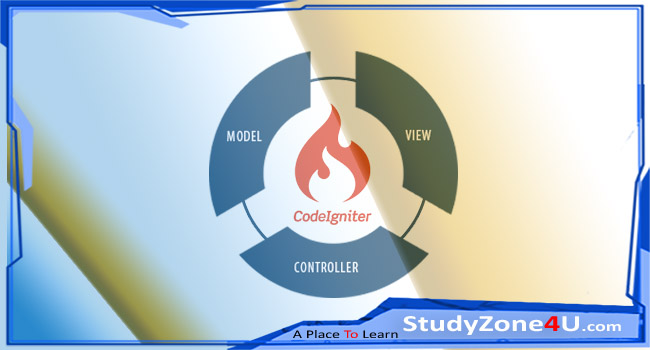Accessing CodeIgniter Super Object from External PHP Script (Outside CodeIgniter)
Last updated 10 months ago | 2004 views 75 5

Accessing CodeIgniter Super Object from External PHP Script (Outside CodeIgniter)
Sometimes, you may need to access CodeIgniter's core features — such as models, libraries, or configuration — from a standalone PHP script that’s not within the standard CodeIgniter controller or application structure.
Examples include:
-
A cron job file in
/scripts/cron.php -
An API entry point separate from normal routing
-
CLI utility scripts or migration tools
What is the CodeIgniter Super Object?
The Super Object in CodeIgniter (usually accessed via $this in controllers and models) is the central point of the framework that gives access to:
-
Loaded models
-
Helpers
-
Libraries (like
email,session,form_validation) -
Configuration
-
Database
In external scripts, this Super Object isn’t available unless manually initialized.
✅ Step-by-Step: Bootstrapping CodeIgniter in an External Script
Let’s say your external PHP file is located at:
/external/run_task.php
Your CodeIgniter app is installed in:
/ci_app/
✅ Step 1: Define a Path to CodeIgniter’s index.php and BASEPATH
// File: /external/run_task.php
define('CI_ENV', 'development'); // optional
$system_path = '../ci_app/system';
$application_folder = '../ci_app/application';
// Define constants that CodeIgniter expects
define('BASEPATH', realpath($system_path) . '/');
define('APPPATH', realpath($application_folder) . '/');
define('VIEWPATH', APPPATH . 'views/');
define('FCPATH', __DIR__ . '/');
// Set $_SERVER and $_ENV if necessary
$_SERVER['SCRIPT_NAME'] = '/index.php';
$_SERVER['SCRIPT_FILENAME'] = __FILE__;
✅ Step 2: Load the CodeIgniter Core and Bootstrap
// Load the base CodeIgniter core
require_once BASEPATH . 'core/Common.php';
require_once BASEPATH . 'core/CodeIgniter.php';
Note: This is simplified. A more stable approach is to load
index.phpindirectly by replicating its boot process, including loadingbootstrap.php.
✅ Step 3: Manually Load Required Classes
Once the CodeIgniter base is loaded, you can instantiate the main $CI object:
$CI =& get_instance();
// Load necessary libraries/models
$CI->load->database();
$CI->load->model('My_model');
// Call model method
$data = $CI->My_model->get_data();
print_r($data);
Full Working Example
File: /external/run_task.php
<?php
define('CI_ENV', 'development');
// Paths to your CodeIgniter installation
$system_path = '../ci_app/system';
$application_folder = '../ci_app/application';
// Required base definitions
define('BASEPATH', realpath($system_path) . '/');
define('APPPATH', realpath($application_folder) . '/');
define('VIEWPATH', APPPATH . 'views/');
define('FCPATH', __DIR__ . '/');
// Set up server variables
$_SERVER['SCRIPT_NAME'] = '/index.php';
$_SERVER['SCRIPT_FILENAME'] = __FILE__;
// Load CI base
require_once BASEPATH . 'core/Common.php';
require_once BASEPATH . 'core/CodeIgniter.php';
// Access the CI Super Object
$CI =& get_instance();
$CI->load->helper('url');
$CI->load->database();
$CI->load->model('My_model');
// Use the model
$data = $CI->My_model->get_data();
print_r($data);
Example Model: application/models/My_model.php
<?php
class My_model extends CI_Model {
public function get_data() {
return $this->db->get('my_table')->result();
}
}
Tips
-
✅ Set error reporting at the top of your script:
error_reporting(E_ALL); ini_set('display_errors', 1); -
✅ Use relative paths carefully, or better yet, use
realpath()to resolve absolute paths to avoid file inclusion issues. -
✅ Use
$CI =& get_instance();instead of creating new instances to access libraries/models loaded via the Super Object. -
✅ Keep the external script light — offload logic to models or libraries so you follow MVC.
⚠️ Common Pitfalls
-
❌ Incorrect base paths: Relative paths may fail. Use
realpath()or test with__DIR__. -
❌ Missing
get_instance()call: Without this, you can’t access$CIand will get errors like "Call to a member function on null". -
❌ Directly instantiating models: Avoid doing
new My_model();— instead, let CodeIgniter handle it via$CI->load->model(). -
❌ Trying to load controllers: You typically shouldn't instantiate controllers in external scripts. Use models or libraries instead.
-
❌ Wrong PHP version or file permissions: Always ensure external scripts match the PHP version of your CodeIgniter app.
Use Cases
-
Cron jobs fetching/syncing data
-
Background workers processing queues
-
Data import/export scripts
-
Setup scripts or one-time migrations
Conclusion
Accessing CodeIgniter’s Super Object from an external PHP script allows you to leverage your existing models, configurations, and database layers without duplicating code or logic. It’s a powerful technique, especially for cron jobs or CLI tools — just be cautious with path setup and Super Object access.


